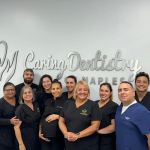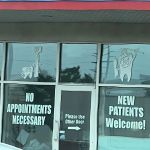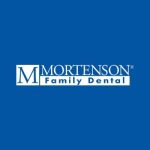- 1. What is Dry Mouth (Xerostomia)?
- 2. Common Causes of Dry Mouth
- 3. Medications and Their Role in Causing Dry Mouth
- 4. Medical Conditions That Cause Dry Mouth
- 5. Effective Treatments for Dry Mouth
1. What is Dry Mouth (Xerostomia)?
Dry mouth, also known as xerostomia, is a condition where the mouth doesn’t produce enough saliva. This can lead to a variety of uncomfortable symptoms, such as difficulty swallowing, speaking, and even tasting food. Saliva is essential for moistening the mouth, helping with digestion, and maintaining oral health by preventing infections. When your saliva production is insufficient, you may experience dryness, sticky feeling, bad breath, and even tooth decay over time.Understanding the causes of dry mouth is crucial for addressing the issue and preventing further complications. While occasional dry mouth can occur due to temporary factors, persistent or frequent dry mouth may require medical attention and treatment.2. Common Causes of Dry Mouth
Dry mouth can result from various factors, both temporary and chronic. Some of the most common causes include:Dehydration: Not drinking enough water or excessive fluid loss (due to exercise, heat, or illness) can cause dehydration, which often leads to dry mouth.Mouth Breathing: Breathing through your mouth, especially when sleeping, can dry out the mouth. This is particularly common in people who suffer from nasal congestion.Stress and Anxiety: Emotional stress or anxiety can trigger a dry mouth due to changes in your body’s natural response to stress. When stressed, your body may produce less saliva.Smoking: Smoking or using tobacco products can reduce saliva production, leading to dry mouth. The chemicals in tobacco also irritate the salivary glands.3. Medications and Their Role in Causing Dry Mouth
Many medications can lead to dry mouth as a side effect. Some common types of medications that may cause xerostomia include:Antihistamines: Used to treat allergies, antihistamines can reduce the amount of saliva your body produces.Decongestants: Often taken for colds or sinus issues, decongestants can lead to mouth dryness.Antidepressants: Some medications used to treat depression and anxiety can affect saliva flow.Blood Pressure Medications: Certain drugs used to control blood pressure, such as diuretics, can reduce saliva production.Pain Medications: Opioid painkillers and other strong medications often result in dry mouth as a common side effect.If you suspect your medication is causing dry mouth, consult with your doctor. They may be able to adjust your dosage or offer an alternative treatment.4. Medical Conditions That Cause Dry Mouth
Several medical conditions and diseases are linked to chronic dry mouth. Some of the most common medical causes include:Sjogren’s Syndrome: An autoimmune disorder that primarily affects the salivary and tear glands, causing dry mouth and dry eyes.Diabetes: High blood sugar can affect saliva production, leading to dry mouth. In severe cases, uncontrolled diabetes can lead to frequent dehydration.HIV/AIDS: The virus and related medications can impact the salivary glands, causing reduced saliva production and dry mouth.Alzheimer’s Disease: Dementia-related conditions like Alzheimer’s can affect the salivary glands, leading to a persistent dry mouth.Radiation Therapy: Cancer treatments involving radiation, particularly those for head and neck cancers, can damage salivary glands, leading to long-term dry mouth.If you have a medical condition that might be contributing to your dry mouth, managing the condition with proper medical guidance is essential to improving your symptoms.5. Effective Treatments for Dry Mouth
There are several ways to manage and alleviate the symptoms of dry mouth. Some treatments focus on stimulating saliva production, while others aim to reduce discomfort:Hydration: Drinking plenty of water throughout the day can help keep your mouth moist and alleviate dry mouth symptoms. Using a humidifier at night can also prevent your mouth from becoming too dry while sleeping.Saliva Substitutes: Over-the-counter saliva substitutes, such as sprays, gels, or rinses, can provide relief by moistening the mouth.Chewing Sugar-Free Gum: Stimulating saliva production can be as simple as chewing sugar-free gum or sucking on sugar-free candies. Look for products containing xylitol, which has been shown to help fight dry mouth.Medications: Certain medications, such as pilocarpine or cevimeline, can be prescribed to increase saliva production if your dry mouth is caused by a medical condition.Oral Care Products: Use fluoride toothpaste and mouth rinses designed for dry mouth to help protect your teeth and gums. Avoid mouthwashes with alcohol, which can further dry out the mouth.For chronic or severe cases, it's essential to consult with your healthcare provider or dentist to explore additional treatment options.If you're struggling with dry mouth, it’s crucial to address the root causes and seek the right treatments. For expert advice on managing dry mouth and maintaining good oral health, visit Family Dentistry Online for personalized recommendations and care tips.







 Doctor Lenz DDS Gentle Family Restorative Dentistry5.0 (4 review)
Doctor Lenz DDS Gentle Family Restorative Dentistry5.0 (4 review) Caring Dentistry of Naples5.0 (93 review)
Caring Dentistry of Naples5.0 (93 review) Neptune Dental Care4.0 (529 review)
Neptune Dental Care4.0 (529 review) Sangchi Tang, DDS5.0 (1 review)
Sangchi Tang, DDS5.0 (1 review) Mortenson Family Dental4.0 (413 review)
Mortenson Family Dental4.0 (413 review) Dentlife Dental Care4.0 (15 review)
Dentlife Dental Care4.0 (15 review) The Importance of Oral Health Education During Pregnancy for a Healthy Pregnancy
The Importance of Oral Health Education During Pregnancy for a Healthy Pregnancy Best Tips for Brushing Your Teeth Properly for Healthy Gums: Essential Techniques for Oral Health
Best Tips for Brushing Your Teeth Properly for Healthy Gums: Essential Techniques for Oral Health Why Skipping Dental Checkups Can Lead to Bigger Oral Health Problems
Why Skipping Dental Checkups Can Lead to Bigger Oral Health Problems Advantages of Porcelain Dental Restorations
Advantages of Porcelain Dental Restorations How Can Diabetes Cause Tooth and Gum Problems? Preventing and Managing Oral Health Issues
How Can Diabetes Cause Tooth and Gum Problems? Preventing and Managing Oral Health Issues Healthy Habits for Promoting Good Oral Health and Hygiene: Tips for a Healthy Smile
Healthy Habits for Promoting Good Oral Health and Hygiene: Tips for a Healthy Smile